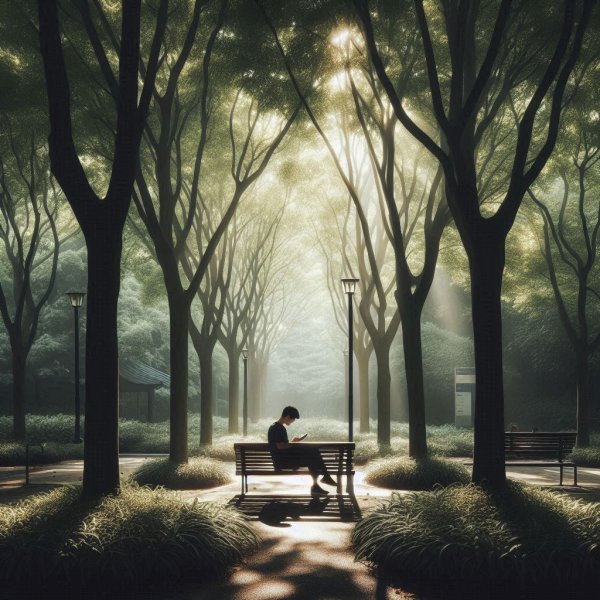
In today’s world, we have never had so many ways to engage with each other, build relationships, make connections, and keep in touch. Yet, according to a recent survey, 24% of adults in the UK reported feeling lonely “often, always, or some of the time”, which is a significant proportion of the population. Although loneliness affects older generations, there is also a significant increase among younger adults. Around a million young adults in the UK are chronically lonely. Recent studies show that the more time young people spend on social media, the more they feel socially isolated and alone. This Is not surprising given the negative effects of making unrealistic comparisons and the impacts on self-worth, and that the use of social media platforms tends to encourage.
So why are there unhealthy behaviours at the heart of the human condition and what is the fundamental cause? At least part of the answer is that there is an inherent paradox to being human; on the one hand, we are separate individuals and on the other, we are all part of the whole human family.
As Albert Einstein eloquently pointed out: “A human being is a part of the whole called by us universe, a part limited in time and space. He experiences himself, his thoughts and feelings as something separated from the rest, a kind of optical delusion of his consciousness. This delusion is a kind of prison for us, restricting us to our personal desires and affection for a few persons nearest to us. Our task must be to free ourselves from this prison by widening our circle of compassion to embrace all living creatures and the whole of nature in its beauty.”
On an individual level, we all have a unique body we private thoughts, memories, feelings, identity, and history. Of course, our individual bodies, life experiences, and memories are uniquely ours. Yet science tells us that our bodies share around ninety-nine percent of the same genetic code, which is no surprise given we’re the same species. And in other areas, as the saying goes, “There’s nothing new under the sun”; most of our thoughts, beliefs, opinions, and culture come from the outside world through education, the media, or conversations.
So, the paradox is that we somehow negotiate two contradictory truths; one is that we are separate individuals, and the other is that we are an interconnected part of the whole. On one side, this paradox explains why we have a fundamental need to feel acknowledged and experience love and connection, while on the other why we can feel isolated, lonely, and alienated, even when we live in a huge city. The fact is that everyone wants to be happy and fulfilled: your work colleagues, the difficult manager, the taxi driver, the waiter in the café, and the other commuters on the train.
It’s unfortunate that the most effective way of selling products in our consumer-led society is based on a value system that treats us as individuals but promises future happiness and fulfilment by persistently pointing out our limitations; that we’re not good enough unless we have the latest car, the new sofa, exotic holidays, and a large social network of fantastic and attractive friends. All this reinforces feelings of inadequacy and low self-worth and encourages unhealthy behaviours across younger generations.
So how can we flip this paradox and become individuals who are also interconnected with other people? One approach is by cultivating mindfulness and compassion by:
- Engaging with the world and people around us with openness, friendliness, and kindness
- Practising patience and acceptance
- Taking the time to see, hear, and truly acknowledge other people
- Deeply recognising that everyone experiences times of vulnerability, difficulties and challenges, pleasure and pain and has a complex inner life just like our own.
By exploring our individuality and interconnectedness with the whole of life and humanity, we open up the potential to resolve the sense of isolation and disconnection, which helps us discover the full meaning of life’s joy and happiness.
Suggested weekly practices
- When you are next walking down a busy street by yourself, playfully explore seeing yourself and the other people as all connected at one level, rather than as separate isolated individuals.
- Notice how much you rely on others in your life and consider what you do for other people.
- Try to acknowledge strangers during the week, maybe talking in a friendly way to the person serving you in a shop or café.
Guidance
Find somewhere undisturbed and sit in a comfortable, dignified, and upright posture, where you can remain alert and aware.
There are two guided practices for this session. You can close your eyes or lower your gaze while the meditations play.
- Play the settling practice, then read the session content, which you can print off if that helps.
- Then play the second practice to explore inter-connection with others by practising loving kindness.
